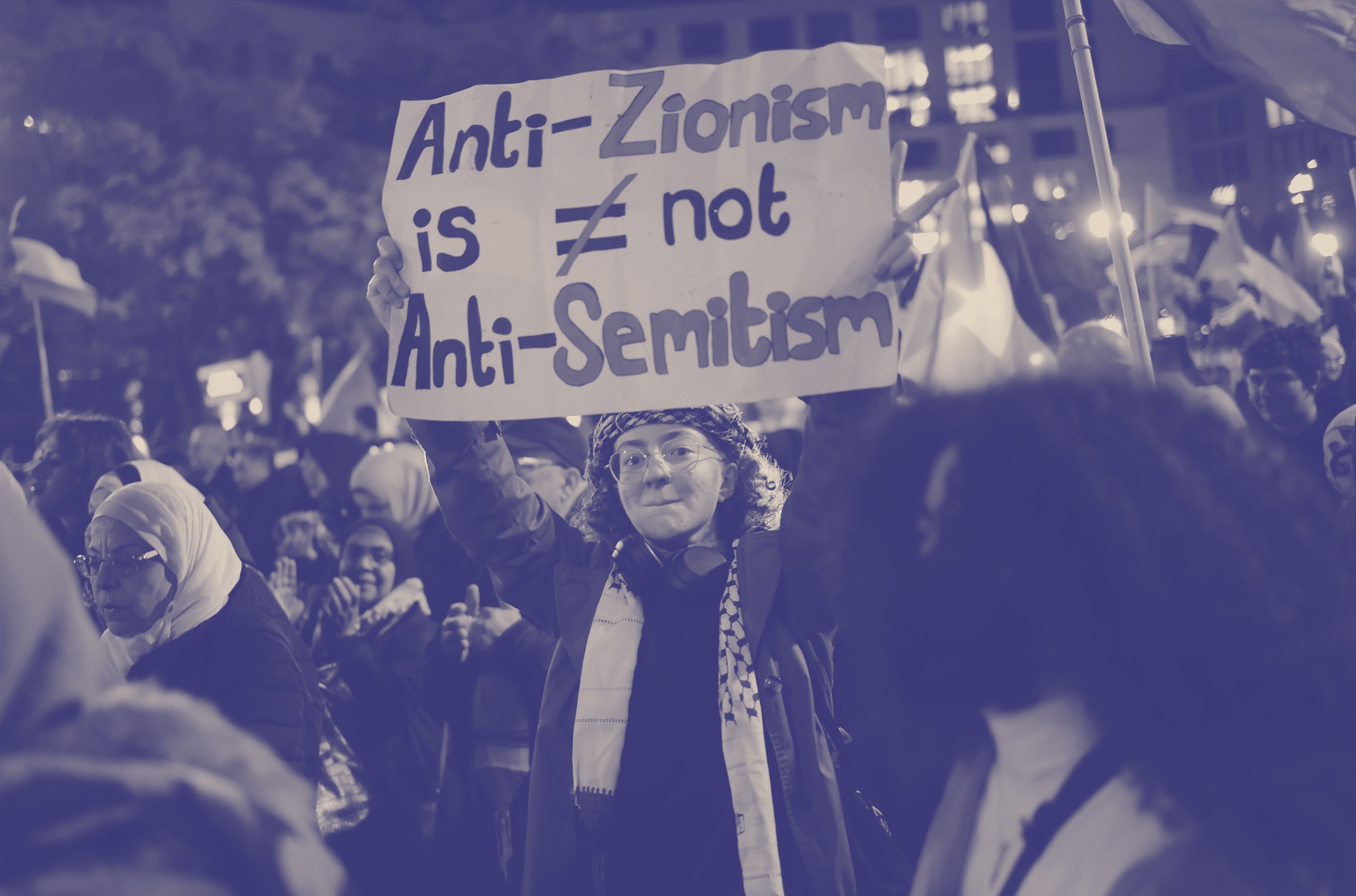(JR) — My 95-year-old mother knows a thing or two about trauma. Not only because she is a survivor of Auschwitz but also because she is a psychologist.
“What worries me,” my mother says, “is that we Jews will succumb to our past trauma rather than rise above it.”
I share my mother’s concern.
Jewish Americans face the threats of escalating antisemitism and growing white nationalism at the same time that the Israeli government’s anti-democratic policies are eliciting increasingly harsh condemnation worldwide.
There is no inherent relationship between antisemitism and the outcry over Israeli policies. But when they occur together, they can trigger traumatic memories and confuse our thinking. This confusion can lead to a dangerous conflation of issues at the intersection of Israel and antisemitism.
Prime Minister Netanyahu exploits this confusion to deflect condemnation of his policies. He constructs a misleading equation, portraying severe criticism of Israel as not only a threat to the Jewish state but also to the Jewish people.
To demonize his political opponents, Netanyahu invokes the ultimate act of antisemitism, the Holocaust. He did so when he blasted those negotiating a nuclear deal with Iran and when he reprimanded The New York Times over its criticism of the agreements he reached with far-right political parties. His strategy is to downplay antisemitism on the right and emphatically equate left-wing with right-wing antisemitism to obscure their distinctions.
Some Jewish organizations, perceiving strong criticism of Israel as threatening Jewish unity and the Jewish state, reflexively reinforce that equation. A case in point is Anti-Defamation League chief Jonathan Greenblatt’s approach to anti-Zionism.
Greenblatt used his keynote address at ADL’s annual leadership summit in May to hammer home his assertion that “Anti-Zionism is antisemitism. Full stop.” Over the past two weeks, he has played a leading role in the campaign to endorse the International Holocaust Remembrance Alliance non legally binding working definition of antisemitism (IHRA) as the sole such definition in the Biden administration’s U.S. National Strategy to Counter Antisemitism. In a tweet urging its adoption, Greenblatt proclaimed: “Anything else permits antisemitism under the guise of anti-Zionism.”
Greenblatt was worried about reports that the White House would include other definitions in the strategy, such as the Nexus Document, which addresses “the complexities at the intersection of Israel and antisemitism.” Greenblatt has repeatedly denigrated Nexus by calling it a “pasted-up process organized by activists” and circulating inaccuracies like: “The Nexus definition assumes that unless there is outright violence involved, anti-Zionism is generally not antisemitism.”
In fact, the Nexus Document includes seven examples of anti-Zionist or anti-Israel behavior that should be considered antisemitic and four that might not be. As Dov Waxman, a member of the Nexus Task Force and chair of Israel Studies at UCLA, tweeted: “Nexus clearly identifies when criticism of Israel or opposition to it crosses the line into antisemitism. But because it is clearer than IHRA in this respect, it is less susceptible to being misused and weaponized against Palestinians and their supporters.”
It’s not that Greenblatt doesn’t understand the complexity of these issues. He has taken nuanced and moderate positions on anti-Zionism in the past. But complex formulas impede the use of simplistic equations. If Greenblatt wants to show that anti-Zionism is always an existential threat to both the Jewish state and the Jewish people, he can leave no room for nuance.
Ultimately, the White House acknowledged the significance of utilizing a varied set of resources to combat antisemitism, stating, “There are several definitions of antisemitism, which serve as valuable tools to raise awareness and increase understanding of antisemitism.” The strategy acknowledged that the United States had already “embraced” the IHRA version, describing it as the “most prominent,” and went on to say that it “welcomes and appreciates the Nexus Document” and other efforts.
That formula has angered some supporters of the IHRA definition, including World Jewish Congress president Ronald Lauder, who said: “The inclusion of a secondary definition in addition to the International Holocaust Remembrance Alliance working definition of antisemitism is an unnecessary distraction from the real work that needs to be done.”
Like Greenblatt, Lauder wants to build a consensus around a simple explanation for a complex situation. But their approach actually diminishes our ability to carry out “the real work that needs to be done” because it weakens our ability to confront the dominant force fueling increased antisemitism in America: white supremacy
According to the ADL, white supremacy is the greatest danger facing Jewish Americans. As President Biden said in his opening remarks when the National Strategy was unveiled: “Our intelligence agencies have determined that domestic terrorism rooted in white supremacy — including antisemitism — is the greatest terrorist threat to our Homeland today.”
“We can’t take on white supremacy, xenophobia, anti-LGBTQ hate, or any form of hate without taking on the antisemitism that helps animate it,” says Amy Spitalnick, the CEO of the Jewish Council for Public Affairs and former head of Integrity First for America, which successfully sued the neo-Nazis who organized the deadly 2017 Charlottesville march. “And likewise, we can’t take on antisemitism without taking on white supremacy or these other forms of hate … All our fates are intertwined.”
But Israel’s policies create a dilemma. When many of our potential allies see Israel, they see a country that calls itself a democracy but enacts laws enshrining Jewish dominance over Palestinian citizens of Israel. And they see a country that has denied fundamental human rights to Palestinians in the West Bank and Gaza for 56 years. So, not surprisingly, they are moved to speak out about these realities.
Criticism of Israel will inevitably heighten in response to the policies and actions of this Israeli government. Some of Israel’s critics may indeed cross a line by using antisemitic tropes or stereotypes or denying Jews the same rights afforded to others, including Palestinians. When they do, they should not get a free pass. Full stop.
But we must resist the temptation to reflexively respond with accusations of Jew-hatred, even when the criticism of Israel is off-base or unjustified. We cannot afford to oversimplify complex issues by conflating political disagreements about Israel with antisemitism. If we do, we risk distracting from addressing the most dangerous instances of antisemitism and bigotry.
Times like these call on us to shed the weight of our past and approach these issues with clear minds and thoughtful consideration. “Sometimes we split the world into good and bad to guard ourselves against difficult realities,” my mother said. “If we can rid ourselves of the bad and make it so the other side is always guilty, then we feel safe. But by doing so, we lose the ability to find a solution.”
The views and opinions expressed in this article are those of the author and do not necessarily reflect the views of JR or its parent company, 70 Faces Media.




